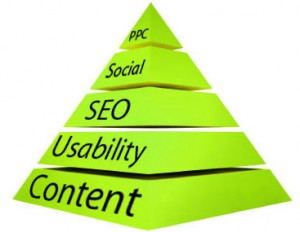Posts tagged web writing

Tips to Becoming a Better Becoming a Better Web Content Writer
There are always many business owners, marketers and others who wish to improve their writing skills as they create and distribute their web content online, and even for those that don’t plan on making writing a profession, there are still good ways to hone your skills to become more effective with your ability to communicate via the written word. Here are 3 good ways to evaluate your writing skills.
Write the Article, Then Come Back in 2-3 Days
A great way to know if your writing is at the highest level is to write about a topic that you’re passionate about, and then step back and leave it for a bit. Come back later to review what you’ve created two to three days later. You can’t truly evaluate the quality of your written piece if you review it right after you finish writing. The tendency to be emotionally attached to your own web content writing is too strong at this point, and can affect your judgment on the piece. If you write a blog, publish your article or essay, and then come back to it when your emotional connection has subsided. This can allow you to be in a better position to make an honest evaluation of your work.
Take Your Direction From Search Engines
Search engines like Google, Yahoo and Bing can help to make a rough evaluation of your web content writing kills sometimes. Recent search engine algorithms on all major engines are now equipped with the ability to determine relevancy and quality of web content. Their spiders are constantly sweeping the web to index sites and rank them according to the quality of their online content. When you receive a good Google ranking or Yahoo, Bing ranking etc…this is an indication your content is gaining favor from both readers AND search engines.
Post Content on Social Media
Share your web content with friends and contacts, and gain the extra exposure it brings on sites like Facebook and the many others. If it gets a lot of “Likes” and “Shares”, you can be pretty sure that your article or post is well-liked for its information, quality, and substance.
Objectively Evaluate Your Work
Try not to judge your work as “good” or “bad”, because it can blind you to areas that need improvement. Make an objective evaluation of your work instead. Set a criterion where absolutely flawless equals 100. Then deduct points from every error that you find. These results can assist you in measuring your improvement as you travel along on your web content writing career.
Also remember, being a good writer takes practice! Which means, you need to exercise the “brain muscles” that create your wonderful content often, as you would any other muscle. Sticking to a very regular and frequent publishing calendar for web content creation and distribution can be challenging, for sure. But in the end your business will prosper because of it, as will your confidence in your own writing abilities over time.
And of course, if ever you decide that you’d like a partner to assist you with your web content writing/creation, there are many resources available to you, including Hat Trick Associates of course but also many other experts as well.
And if you do decide to be your web content writer on your own, remember that practice makes perfect. Or maybe we shouldn’t say perfect, as mentioned above…since there is always room for improvement as you continue your journey as a writer!

How to Schedule Your Web Content Writing
Using an editorial calendar for your web content writing
If you’re creating web content for SEO then you likely already know you need to keep your content up-to-date and fresh for the best results. Search engines like Google want to see relevant and current content on your site before they will consider it worth linking to. It can be difficult to come up with ideas to write about every day, which is where an editorial calendar comes into play. Here are some tips on setting up your editorial calendar for success.
Look at the calendar
Before you plan anything else, you should look at a calendar and find topics that are related to times, holidays, seasons, or other dates. Almost every topic has some kind of seasonality to it, where certain parts of the year lend themselves to writing certain kinds of pieces. For example, you might focus on Christmas time and do the “Twelve Days of Whatever” focused on your topic. The benefit of planning out this kind of content is that you can usually write it in advance. Write it at your leisure and keep it in the queue for the day it’s going to be published. Keywords might change if you write it early, however, so it’s a good idea to do a bit of research before you publish the final post. The calendar approach doesn’t require writing in advance, however. You might plan out a day when you write about an event that’s going to happen. Obviously, you can’t write about something before it has happened, but you can plan for it on the calendar.
Focus on your business
It’s likely that your web content writing is to support a business of some kind or another. The next big area you want to focus on is the goings on at your business. If you know when a product is going to be launched, it’s time to put it on the editorial calendar as well. It doesn’t have to be just one day either. You can write a few days worth of content to go around the big announcement to build buzz and traffic. Important anniversaries are also great fodder for content. When was the company started? When did you launch a certain product or feature? Next, you can write about new employees or executives as they come into the company. If there’s something important going on at your company then you should definitely be writing about it.
Be flexible
Ideally, you will plan out every day in advance so you don’t have to scramble to find topics to cover. That said, you might not be able to find anything suitable for a day that’s a year in the future in a nondescript time. Try to fill up the calendar, but don’t spend so much time on it that it takes away from the actual writing. If you can’t find something, mark it as an open day and be sure to keep an eye out for interesting ideas. Likewise, plan on some of your plans falling through or changing based on breaking news in your industry and the like. Your calendar is a great tool, but if you’re too attached to it then your content will suffer.
If you don’t have an editorial calendar then now is the time to get started! And if you need help with your content, contact Hat Trick Associates to learn more about how their web content writing rates can create positive ROI for your buisness.
Encyclopedia Britannica next “victim” to web content
The forests will benefit. But it was difficult not to feel a pang on hearing the news this week that Encyclopedia Britannica would no longer print the 32 volumes of its famous publication. Especially for those Gen Xers and older folks who used this famous reference piece for countless book reports, class presentations and the like when growing up.
First published 244 years ago in Edinburgh, the Encyclopedia has lined many a bookshelf over the years and used to be shorthand for where to go for information. But the fact that “I’ll Google it” has replaced “I’ll look it up in the Encyclopedia Britannica” is one reason why it will now only be published online.
Britannica, the US company which has published the Encyclopedia since 1902 and is owned by Jacqui Safra of the Swiss banking family, has been right to embrace modernity. Long gone are the days of 1771, when the Encyclopedia defined “woman” as “the female of man”. It claims it was the first encyclopedia to go online, launching on Lexis Nexis in 1981, on CD-ROM in 1989 and on the internet in 1994. And it is easy to see why shifting to online only is the logical next step. As a private company, Britannica’s numbers are hard to come by, so it is not clear how much revenue it is generating from online subscriptions and advertising. But the business rationale behind this week’s decision reflects swift-moving trends with which all publishers are grappling.
The rise of the iPad, and the declining prices of the Kindle and other ereaders, not to mention the relative cheapness of ebooks themselves have led to a surge in their sales. In May last year, Amazon said ebooks were outselling hardbacks and paperbacks for the first time. PwC, the consultancy, expects global spending on ebooks to grow at 35 per cent annually for the next three years, and that they will make up a tenth of all consumer and educational book sales by 2015, up from under 3 per cent in 2010. The trend is particularly marked in the US where, says the Association of American Publishers, ebook sales last December were a staggering 72 per cent higher than a year earlier.
Of course, the Encyclopedia Britannica is not just facing competition from ebooks, but also from other sources of information on the web. Wikipedia says it attracts 400m unique visitors a month. Britannica, whose online versions have 100m users, tries to compete with Wikipedia, as do other online encyclopedias, by allowing users to contribute images or videos and has recently launched an app.
But the struggle between all content providers on the web to attract readers, and thus revenue, appears to be moving decisively away from availability to quality. The fierce competition between information sellers on the web may, hopefully, only serve to encourage Encyclopedia Britannica’s traditional commitment to scholarly authoritativeness.
Even if it does result in an even better Encyclopedia in the future, though, a nostalgic tear still seems merited. In 1998 the Rolling Stones’ Keith Richards suffered cracked ribs from a falling set of Encyclopedia Britannica. Well, it’s all over now.

